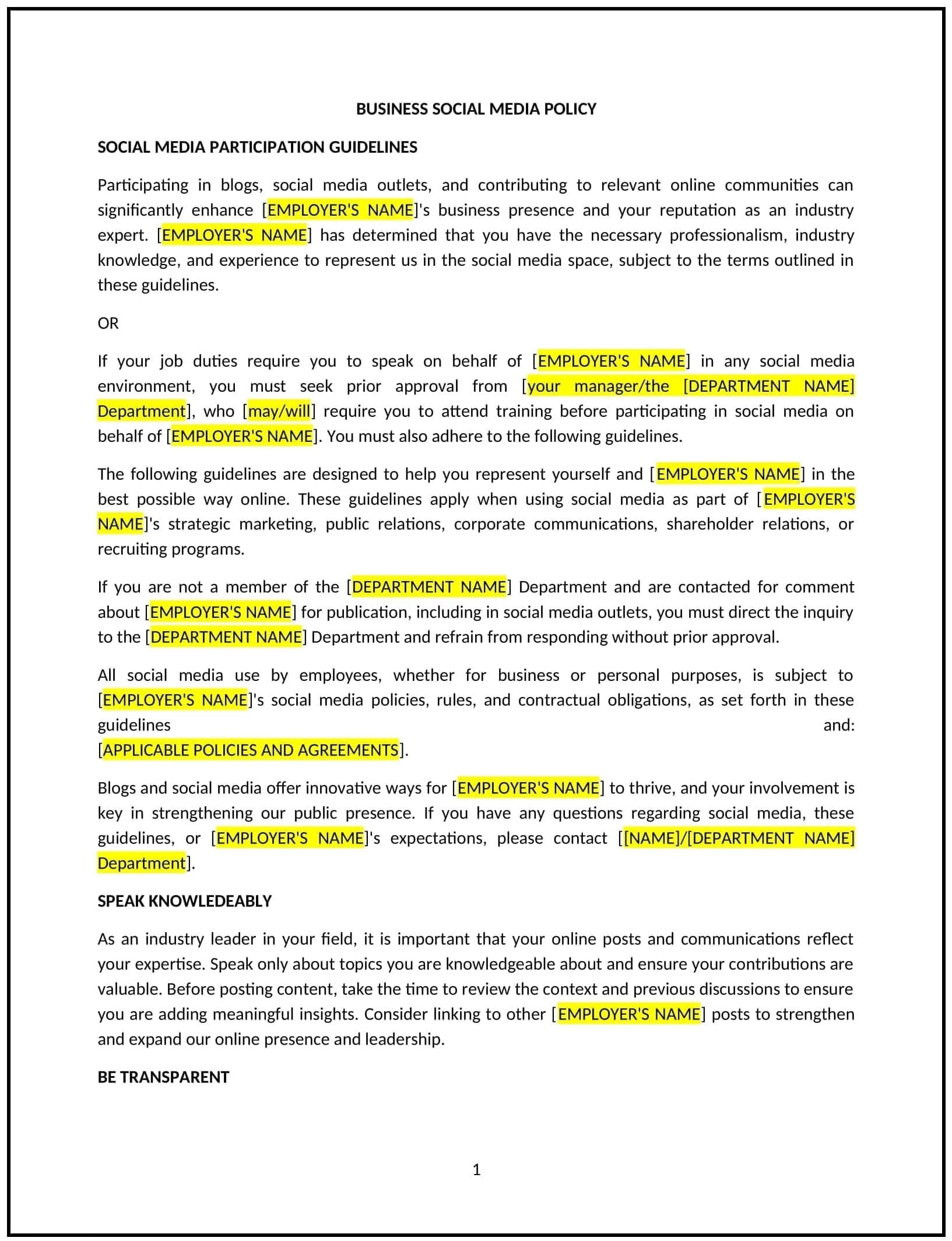Business social media policy (Tennessee): Free template
Got contracts to review? While you're here for policies, let Cobrief make contract review effortless—start your free review now.

Customize this template for free
Business social media policy (Tennessee)
This business social media policy is designed to help Tennessee businesses create guidelines for employees using social media, both professionally and personally. It outlines expectations for online behavior, confidentiality, and brand representation.
By adopting this policy, businesses can protect their reputation, maintain confidentiality, and promote responsible social media use.
How to use this business social media policy (Tennessee)
- Define scope: Clarify whether the policy applies to personal social media use, professional accounts, or both.
- Set expectations: Outline acceptable online behavior, such as avoiding offensive content or disclosing confidential information.
- Address brand representation: Explain how employees should represent the business on social media, including disclaimers for personal opinions.
- Establish consequences: Specify the consequences for violating the policy, such as warnings or disciplinary action.
- Train employees: Educate employees on responsible social media use and the potential impact of their online behavior.
- Review and update: Assess the policy annually to ensure it aligns with evolving business needs and social media trends.
Benefits of using this business social media policy (Tennessee)
This policy offers several advantages for Tennessee businesses:
- Protects reputation: Reduces the risk of negative publicity or damage to the business’s brand.
- Maintains confidentiality: Ensures that sensitive information is not disclosed on social media.
- Promotes responsible use: Encourages employees to use social media in a way that reflects positively on the business.
- Enhances transparency: Provides clear guidelines for employees to follow when engaging online.
- Aligns with modern trends: Keeps businesses competitive by addressing the growing role of social media in the workplace.
Tips for using this business social media policy (Tennessee)
- Communicate the policy: Share the policy with employees and include it in the employee handbook.
- Provide training: Educate employees on responsible social media use and the potential impact of their online behavior.
- Monitor compliance: Regularly review social media activity to ensure adherence to the policy.
- Address issues promptly: Take corrective action if social media use violates the policy.
- Update regularly: Assess the policy annually to ensure it aligns with evolving business needs and social media trends.